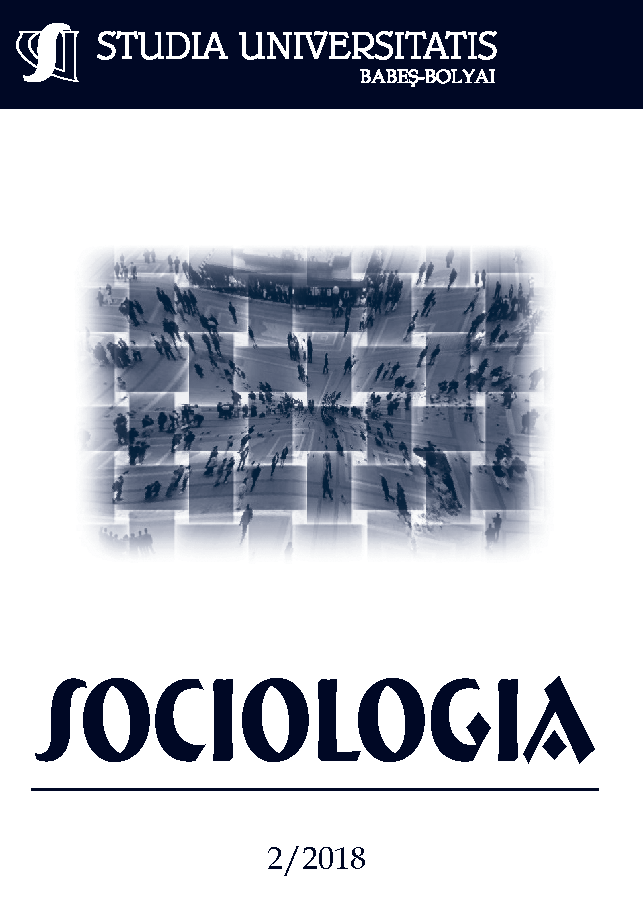‘DID YOU ARRIVE BY TRAIN OR BY SHIP?:’ TRANSPORTATION AS POLITICS AND METAPHOR IN FIELDWORK IN SOCIALIST ROMANIA
DOI:
https://doi.org/10.2478/subbs-2018-0010Keywords:
transportation, fieldwork, Cold War, socialism, mobility, UMass Romanian Research GroupAbstract
This essay considers how transportation and mobility model the character of Romanian-American interaction during fieldwork from the mid-1970s to the mid-1980s. Transportation in socialist Romania was a register of modernization and regime legitimation as well as an absolute threat to that legitimation. Official suspicions of movement and political concern about transportation translated into differentially restricting, policing, and limiting availability of transportation. In contrast anthropological fieldwork is predicated on movement while Western culture also claimed free mobility as a cultural good. These different teleologies provoked diverse disjunctures in my interactions with Romanians. While I engaged with Romanians naively, my travelling together with people either gave them cover for resistance or provoked their fear of political exposure. Sharing transportation resources with Romanians encouraged others’ concerns about my alleged political bias or was used to affirm socialist superiority. In other words, transportation during socialism was never neutral, but freighted politically and culturally confrontational.References
Burrell, Kathy and Kathrin Hörschelmann. (2014). Introduction: Understanding Mobility in Soviet and East European Socialist and Post-Socialist States. In Kathy Burrell and Kathrin Hörschelmann (Eds.). Mobilities in Socialist and Post-Socialist States: Societies on the Move, 1-22. London: Palgrave Macmillan.
Cirniala, Ciprian. (2014). Power and Mobilities in Socialist Romania 1964-1989. In Kathy Burrell and Kathrin Hörschelmann (Eds.). Mobilities in Socialist and Post-Socialist States: Societies on the Move, 45-61. London: Palgrave Macmillan.
Harms, Erik. (2013). Eviction Time in the New Saigon: Temporalities of Displacement in the Rubble of Development. Cultural Anthropology 28(2): 344-68.
Kideckel, David A. (1979). Agricultural Cooperativism and Social Process in a Romanian Commune. Dissertation, Anthropology Department. Amherst: University of Massachusetts.
Kideckel, David A. (1993). The Solitude of Collectivism: Romanian Villagers to the Revolution and Beyond. New York: Cornell University Press.
Kideckel, David A. (2007). Metaphors of America: Labor, Global Integration, and Transylvanian Identities. Hungarian Studies 1-2: 111-34.
Lutz, Catherine. (2014). The US Car Colossus and the Production of Inequality. American Ethnologist 41(2): 232-45.
Rabinow, Paul. (2007, 1st. edition 1997). Reflections on Fieldwork in Morocco. Berkeley: University of California Press.
Siegelbaum Lewis H, Ed. (2013). The Socialist Car: Automobility in the Eastern Bloc. New York: Cornell University Press.
Stefan, Adelina Oana. (2014). Between Limits, Lures, and Excitement: Socialist Romanian Holidays Abroad during the 1960s-1980s. In Kathy Burrell and Kathrin Hörschelmann (Eds.). Mobilities in Socialist and Post-Socialist States: Societies on the Move, 87-104. London: Palgrave Macmillan.
Turnock, David. (2005). Romania’s Railway Development, 1950-1989: Changing Priorities for Socialist Construction. Geografica Pannonica 9: 32-43.
Verdery, Katherine. (1996). What Was Socialism and What Comes Next. Berkeley: University of California Press.
Verdery, Katherine. (2018). My Life as a Spy: Investigations in a Secret Police File. Durham: Duke University Press.
Yarrington, Landon. (2015). The Paved and the Unpaved: Toward a Political Economy of Infrastructure, Mobility, and Urbanization in Haiti. Economic Anthropology 2(1): 185-204.
Zderciuc, Boris. (1972). Combinatul Chimic Făgăraș, Factor de Transformarea Socială [Făgăraș Chemical Combine, Social Transformation Factor]. In Traian Herseni, Combinatul Chimic Făgăraș, 50 de Ani de Existența [Făgăraș Chemical Combine, 50 Years of Existence], 277-302. Ed. Sibiu: Întreprinderea Poligrafică.
Živković, Marko. (2014). Little Cars that Make Us Cry: Yugoslav Ficá as a Vehicle for Social Commentary and Ritual Restoration of Innocence. In David Lipset and Richard Handler, (Eds.). Vehicles: Cars, Canoes, and Other Metaphors of Moral Imagination, 111-33. New York: Berghahn Books.
Downloads
Published
How to Cite
Issue
Section
License
Copyright (c) 2018 Studia Universitatis Babeș-Bolyai Sociologia

This work is licensed under a Creative Commons Attribution-NonCommercial-NoDerivatives 4.0 International License.






